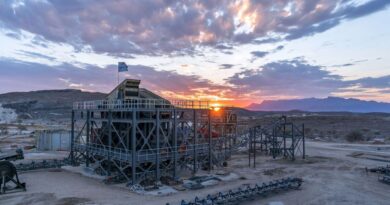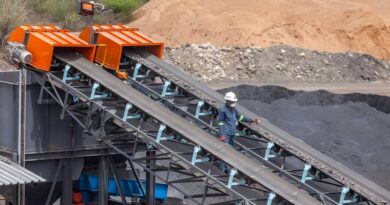SA economy: Light at the end of tunnel?
The Budget, was it good or bad? Will it give us more economic freedom and prosperity? The good news is that it will, according to the Free Market Foundation.
The most fundamental question is whether “Tax Freedom Day” (TFD) will be earlier or later. TFD is calculated annually by statistician Garth Zietsman. It is the day of the year when we start working for ourselves. If the government takes 50% of national income, TFD is the mid-year (end of June). Under this Budget TFD will be four days earlier (2 May) than last year (6 May).
What makes this particularly significant is that we started moving in the right direction during the Mandela era (from below the 100th freest economy up to the 40s), stagnated during Mbeki, and then crashed staggeringly during Zuma (from the 40s to well below the 100s) to place us alongside some of the world’s most backward countries. Since this Budget promises a return towards economic sanity, it might be the most significant Budget in a generation.
That is a strong statement, yet justified.
Zietsman captures how seriously we deteriorated. “In 1994, it took 101 days to pay for government. It now takes 121 days – three weeks more – and government consumes more than half the economic growth since 1994.”
Another significant push up the economic freedom index is “Operation Vulindlela”. If implemented, deregulation will cut “red tape”, doing business will be easier, employment will increase, and there will be more private ownership. Mboweni emphasised an increased role for private-public partnerships (PPPs), ease of investment in infrastructure (as opposed to “prescribed assets”), and progress towards zero-based budgeting, especially in wealth-wasting State owned enterprises (SOEs).
He said that growth of personal taxes would be reversed – no aggregate increase this year, and reduced company tax. He promised less “petty” action in government. They could start by harassing innocent by-passers less at looney road blocks, and redirecting police from obstructing civilians to protecting them.
Minister Mboweni emphasised being serious about promises. Really? That would be a first. Virtually every State of the Nation Address (SONA), national Budget, ministerial budgets and more have promised liberalisation for decades. Whilst empty promises were being made in parliament, it was adopting laws and policies to the opposite effect.
We presently have, for instance, a government committed to “expropriation without compensation” (EWC), more money wasted on clinical SOEs, nationalisation of health care (NHI), part-nationalisation of the mobile phone network (WOAN), and more.
The grossest travesty by far is the expropriation without compensation of millions of black-owned households in terms of the Upgrading of Land Tenure Rights (ULTRA) Amendment Bill. It will seize more black-owned land than contemplated during apartheid’s wildest fantasies and wettest dreams. The act granted millions of apartheid victims ownership of their land. The bill will take it all back: five million households with twenty million impoverished people and no means to defend their liberty.
The proverbial bottom line is that, on balance, this is a good Budget because it turns the country from stampeding towards less economic freedom towards more. Mboweni stressed his intention to leave the economy in better shape for those who come after us. If he does what he promised, that will be his legacy.
It was, of course, not all wisdom and insight. “We … expect … R1.21 trillion in taxes during 2020/21”, Minister Mboweni said, “which is about R213 billion less than (expected, which is) the largest tax shortfall on record.” He blamed Covid instead of reckless lockdowns for the greatest contraction (-7.2%) in living memory. At the miserable 1% growth rates we endure it would take a decade to get back to where we were last year.
Debt is arguably our worst nightmare. He lamented that the royal “we” owe lots of people lots of money. The third biggest budget item is interest on debt – not debt redemption – 12,3% of the Budget placing it 3rd behind Social Development and Basic Education – more than on services, policing, housing, health care or other priorities for the poor. On the bright side, he seemed to grasp how serious the debt crisis is, and promised not only debt reduction, but surplus Budgets. “Government debt will stabilise at 88.9 per cent of GDP in 2025/26”. Although excessive, it will at least be capped.
Inevitably, we were subjected to the vacuous shibboleth that the government wants “job creation” without recognition that the world’s most grotesque enduring unemployment rates are the intended consequence of his heartless labour and investment policies. Jobs are not “created”. So long as there are unsatisfied wants, jobs exist. The question is what stops people working for those who want their work. The answer is anti-labour laws that increase the cost, risk and difficulty of employment, and taxes and controls that stifle incentives, all of which should be scrapped.
Mboweni mentioned the high growth rates expected in China and India without saying how achieved. The Indian determinant is economic freedom “reforms”. The key Chinese determinant is six large “Special Economic Zones” (SEZs). These are the freest economies on earth. We have SEZs with nothing special. Like China, we need fewer (not fake SEZs in every province) that are truly “special” – deregulation of forex, labour, competition, licencing, immigration, imports and the like.
If we are lucky, very lucky, promised policies will materialise, and the government will be so intoxicated by success, that it will become addicted to even better policies.




